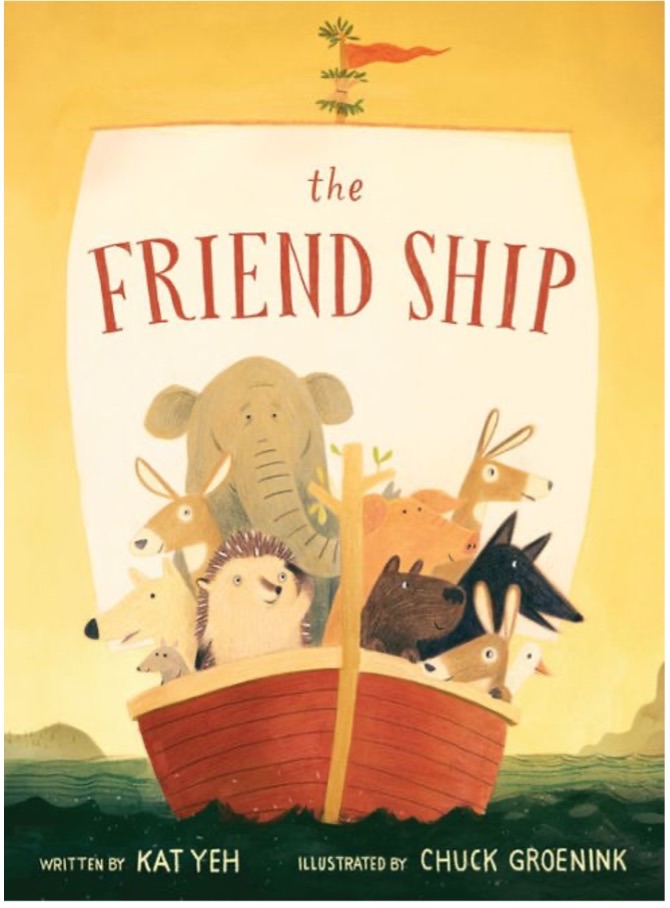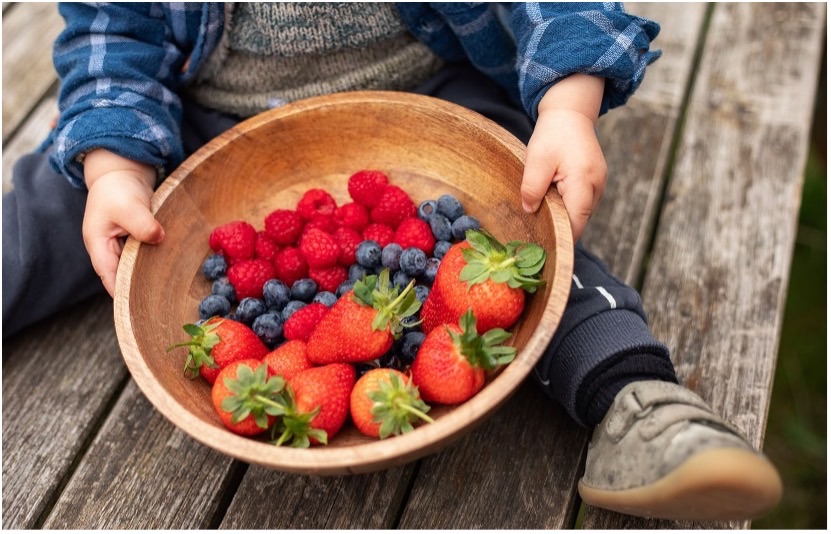October 2023 Newsletter
Fostering friendship
Things are never quite as scary when you have a best friend.
Bill Watterson, author of Calvin & Hobbs
Do you ever think back to your childhood? Do you think back to the friends you made during the earliest years of your life? Do you remember those who dashed around with you in grand adventures of make-believe? Did you laugh and cry, explore and create together? For many of us, memories that have lasted a lifetime came from the time spent side by side with friends.
The world was much less scary when we had our childhood buddies by our side. We were stronger together, braver together, more creative and excitable together. Our friends made the world a much more fun place to be.
The bonds we make during our childhood are ones that many of us hold on to as we grow into adulthood. Those relationships made the great times better. They also provided essential support to make the hard times easier. They stay with us because they helped to shape the way we view ourselves and the world around us.
Early childhood educators have a special role to play in supporting children as they create meaningful friendships. We can show children how to make the type of friends who will accept us for who we are. Building friendship skills inspires children to be the best they can be. Creating shared spaces, teaching social skills and being positive role-models helps friendships grow. Helping children make even one friend, allows them to feel happy and safe. It opens the door to an endless supply of memories that they will cherish for years to come.
I would rather walk with a friend in the dark than walk alone in the light.
Helen Keller, author and disability rights advocate
First friends
Supporting the formation of early friendships between children
Why are friendships so important to a child’s development?
Early friendships are an important part of our childhood. They play a big role in shaping who we are. They help us build confidence and empathy for others. They provide feelings of security and belonging. They help us develop identity.
Relationships with peers help young children experience cultures different than their own. Experiencing other cultures changes the way children see the world. These early friendships also lay the foundation for all future relationships. They provide experience with sharing, respect and resolving conflict.
How can we foster positive and meaningful relationships between young children?
Start by making sure the environment is set up to give children time and space to play together. Through play, children learn about kindness, empathy, conflict, forgiveness and compromise. Read books about friendship. Teach children social skills. Talk about emotions. These are important skills needed to build friendships.
Do you know?
The Child Development Centre has a new home!
The Child Development Centre has officially moved into their new space at 206 Hanson Street in Whitehorse. The new space is beautiful and has amble therapy rooms and meeting rooms to have appointments with families and children. In addition to the new location on Hanson Street, they have a location in Kwanlin Dün at the Dusk’a Head Start Learning Centre, and in Watson Lake and Dawson City. They also travel on a regular basis to every Yukon community.
The Centre is an important and valued partner in education, as they provide therapeutic services and support resources to meet the developmental needs of all children in the Yukon. Additionally, the Early Learning Program Support (ELPS) coaches are here to support child care programs and educators with inclusive programming through free training, tailored professional development, and ongoing support. This can also include providing strategies for early learners with diverse needs who may be struggling with social skills and making connections with other children.

To learn more, contact the Child Development Centre by phone at (867) 456-8182 or by email at [email protected].
How can we support children with diverse needs?
Provide:
- a variety of examples of friendship that showcase every child’s reality;
- a variety of books that reflect a wide range of experiences with making a new friend;
- opportunities for individual and group play (accounting for diverse comfort levels with social interaction); and
- encouragement for reaching out to others, while also respecting personal boundaries and space.
Books to check out:
- A Friend for Henry by Jenn Bailey
- Friends are Friends Forever by Dane Liu
- Sometimes It’s Nice To Be Alone by Amy Hest
- Strictly No Elephants by Lisa Mantchev
- The Almost Terrible Playdate by Richard Torrey
That’s what friends do: lift each other over the cracks.
Lisa Mantchev, author of Strictly No Elephants

Book Nook
Little Hedgehog is feeling lonely. Then she hears about something that might help her. Something called a Friend Ship!
Little Hedgehog imagines a ship filled with many creatures just waiting for her to be their friend. She is determined to find the ship, and along the way, she encounters other lonely animals eager to join her quest. They search high and low, but the friends can't find the Friend Ship anywhere! That is until they realize that they might have already found what they were really looking for all along.
The Friend Ship by Kat Yeh is a charming story that demonstrates how unexpectedly the very best of friendships can form without you noticing.
Childhood friendships are pure. We looked to those around us, caring about nothing except smiling and having fun.
Anonymous
Grow
“Nurturing a sense of well-being and belonging supports children as they learn about and investigate the world around them…. This confidence is essential for children as they explore their capacities as family members, friends, thinkers, citizens and discover their connections to the natural environment.” (B.C. Early Learning Framework, 2019, p. 67)
Consider this reflective question:
How can each child contribute their gifts in a relationship with adults and other children? (p. 73)
How can we reframe and expand this question?
- How might children seek to know one another’s gifts?
- What does it mean for children to be in meaningful and reciprocal relationships with other children?
- How might I provide materials and opportunities for children to build supportive and engaging relationships with their peers?
Explore
Friendship Fruit Salad Song
(Tune: The Bear Went Over the Mountain)
Friends all work together, friends all work together, friends all work together, thank you, thank you friends!
(Insert child’s name) cuts the apple, (insert child’s name) cuts the orange, (insert child’s name) cuts the banana, thank you, thank you friends!

Activity idea: “Good Friend Fruit Salad”
Explore good friend characteristics, such as kindness, respect, fun and generosity. Using fruit pieces as visuals, allow children to participate in making a "Good Friend" fruit salad.
Materials:
- Selection of fruit (cut into bite-size pieces)
- Small cup or bowl for each child
- Serving spoon
Directions:
- Brainstorm qualities you want in a friend (kindness, fun, sharing).
- Assign each quality a type of fruit (fruit should be pre-cut into bite-size pieces).
- Have children mix all the ingredients together in one big salad to share.